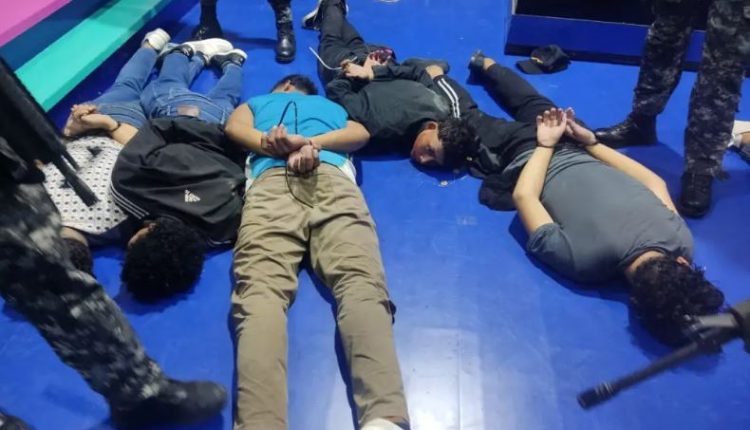
The world was shaken by the shocking news of hooded gunmen storming into a live television show, taking hostages, and declaring a state of war in Guayaquil, Ecuador, and the primary port.
President Daniel Noboa characterized the situation as “apocalyptic,” emphasizing that the country could not afford to capitulate in the face of this unprecedented crisis.
Armed Assault on Ecuador’s Telecentro
The incident unfolded at public television channel Telecentro, where armed gunmen, equipped with powerful weapons and explosives, disrupted a live broadcast.
Viewers witnessed the harrowing scene as staff members were rounded up, forced to lie down, and subjected to the ominous proclamation, “You cannot play with the mafia.”
While gunshots and screams echoed through the air, thankfully, no lives were lost at the station. The government later announced the arrest of several individuals involved in the attack.
The violence, however, extended beyond the TV station, turning deadly with at least two police officers killed, a number of officers abducted, guards taken hostage in multiple prisons, and explosions reverberating across the country.
The chaos reached a new level, exacerbated by false videos and reports circulating on social media, adding to the confusion and fear.
While no specific group was immediately tied to the attack, Ecuador has been grappling with the growing influence of drug trafficking gangs.
The surge in violence in recent years, particularly in cities like Guayaquil, can be attributed to the increased presence of Mexican and Colombian cartels.
The situation escalated when presidential candidate Fernando Villavicencio was assassinated in August, revealing the profound reach of powerful gangs with ties to the Sinaloa cartel.
President Noboa, who took office in November, had pledged to crack down on these gangs and regain control of prisons. However, recent events, including the escape of key gang leaders from prison, have further fueled the violence.
In response to the escalating crisis, President Noboa declared a national state of emergency, granting enhanced powers to the government and armed forces.
Describing the situation as an internal armed conflict, he designated drug trafficking gangs as terrorist groups and authorized military operations to neutralize them, adhering to humanitarian international law.
Read more: Cellmate Allegedly Kills Florida Father Over Sexual Orientation
Crisis Unfolds in Ecuador

Schools and businesses were ordered to close, and security forces were deployed to guard hospitals and transit areas.
The government reported the arrest of over 300 people for acts of terrorism. However, concerns have been raised about potential impacts on human and civil rights, with comparisons drawn to El Salvador’s hard-line tactics against gangs.
The unfolding crisis in Ecuador has wider implications, particularly in terms of migration. The country has witnessed an upswing in migration to the US, and the current upheaval could lead to an even greater exodus.
In the 2023 fiscal year, Customs and Border Protection encountered over 117,000 people from Ecuador at US borders and ports, signaling a significant increase from the previous year.
As Ecuador faces an election next year, the trajectory of the crisis may influence the geopolitical landscape, potentially leading to the election of a government with a hostile stance towards Washington.
Beyond geopolitical considerations, there are profound humanitarian concerns, emphasizing the need for global attention and support for the people of Ecuador as they navigate these turbulent times.
Read more: Tour Bus Overturns On Upstate New York Highway, Leaving Several Injured

